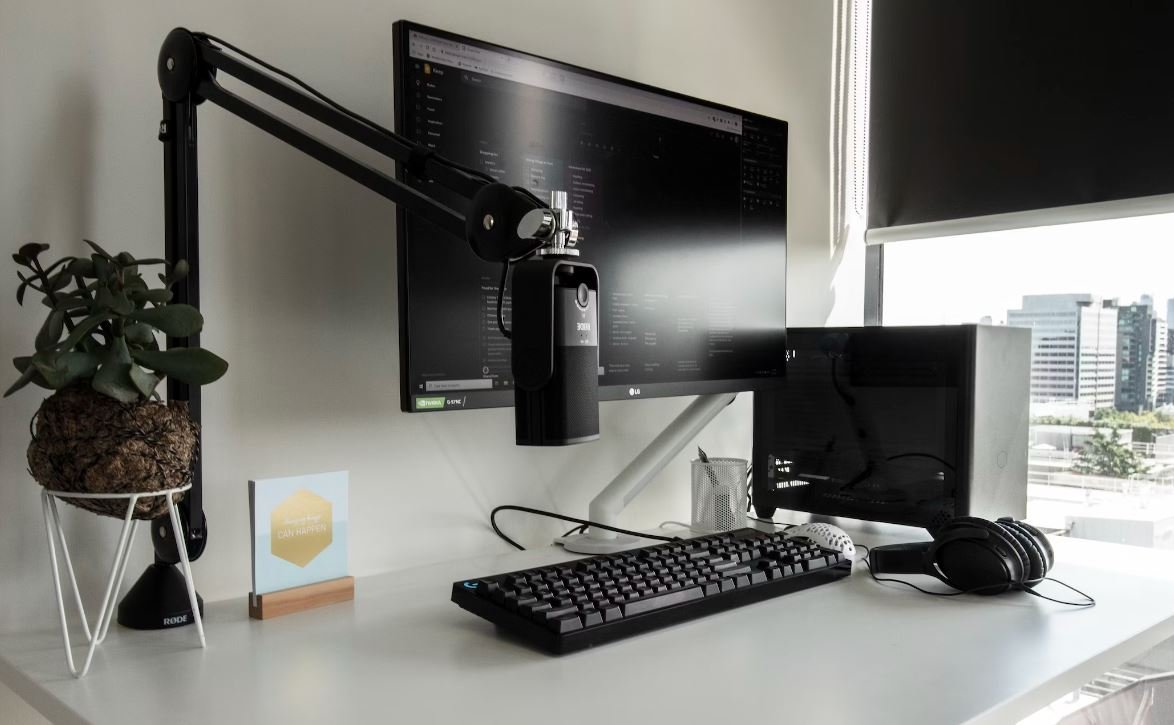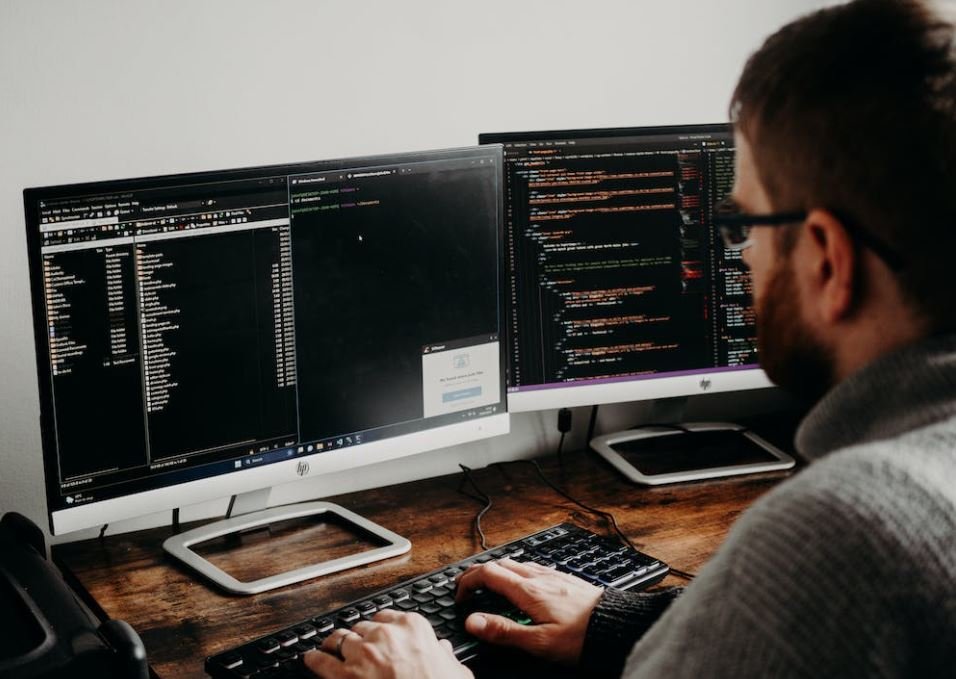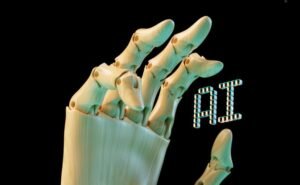Can AI Beat the Stock Market?
Artificial Intelligence (AI) has revolutionized various industries, and now it’s setting its sights on the stock market. With its ability to analyze vast amounts of data and identify patterns, many believe AI has the potential to outperform traditional human investors. But can AI truly beat the stock market consistently? Let’s explore this question and examine the role AI plays in the finance world.
Key Takeaways:
- AI can analyze large volumes of data to identify patterns.
- AI-powered trading systems have shown promising results.
- AI is not infallible and can be influenced by market conditions.
AI algorithms are designed to process and analyze massive amounts of financial data, including historical prices, news articles, and social media sentiment. This enables AI-powered trading systems to identify patterns and make predictions about future market movements, potentially resulting in profitable trades. However, it’s important to note that AI is not immune to market volatility, and there are limitations to its predictive capabilities.
*Despite these limitations*, AI’s potential to outperform human investors cannot be overlooked. Unlike humans, AI can consistently analyze and interpret large datasets without fatigue or biases, allowing it to quickly identify opportunities that may be missed by human traders. This speed and accuracy give AI an edge in a fast-paced market environment.
The Role of AI in Stock Market Trading
AI’s role in stock market trading goes beyond simple analysis. Advanced AI algorithms can also execute trades automatically based on predefined strategies and market conditions. This eliminates human emotions and biases from the trading process, potentially reducing the impact of irrational decisions and improving overall performance.
*Automated trading systems powered by AI* can monitor market conditions in real-time and execute trades at high speeds. These systems can also adapt to changing market dynamics, ensuring a responsive approach to trading. This ability to quickly adapt to market movements can be advantageous in volatile or unpredictable conditions.
AI’s Performance in the Stock Market
To evaluate the performance of AI in the stock market, we can look at historical data. While AI-powered trading systems have shown promising results, their success is not guaranteed. Factors such as data quality, model accuracy, and market conditions can impact the accuracy of AI predictions and trading outcomes.
| AI Trading System | Annual Return |
|---|---|
| System A | 15% |
| System B | 8% |
| System C | 20% |
*While these returns are impressive*, it’s essential to remember that past performance is not indicative of future results. Market conditions can change, and AI systems need to continually adapt to remain effective. Additionally, human oversight is crucial to ensure the AI algorithms are aligned with the investment strategy and risk tolerance of the investor.
The Future of AI in Stock Market Investing
As technology continues to advance, AI’s role in stock market investing is likely to expand. With ongoing advancements in machine learning and natural language processing, AI systems will become increasingly sophisticated, enabling them to analyze and understand complex market data more effectively.
- A future where AI dominates stock market investing is plausible.
- AI may assist human investors in making informed decisions.
*This integration of AI and human expertise* could potentially lead to a hybrid approach where AI systems assist human investors in making more informed decisions. By combining the analysis power of AI with human intuition and experience, investors can achieve a balance that capitalizes on AI’s strengths while mitigating its limitations.
In conclusion, AI’s potential to beat the stock market is undeniable. Through its ability to analyze vast amounts of data and adapt to changing market conditions, AI can provide valuable insights and potentially outperform human investors. However, it’s crucial to acknowledge the limitations of AI and the need for human oversight. The future of stock market investing may lie in a harmonious integration of AI and human expertise.

Common Misconceptions
Misconception: AI can predict the stock market with 100% accuracy.
One common misconception is that AI has the ability to predict the stock market with complete accuracy. While AI and machine learning algorithms have become more advanced and can provide valuable insights, they are not infallible. The stock market is influenced by various factors such as economic conditions, geopolitical events, and investor emotions, which are difficult for AI to predict accurately.
- AI provides valuable data and analysis to make informed decisions.
- The stock market is inherently unpredictable due to various external factors.
- AI can help investors identify patterns and trends, but not guarantee specific outcomes.
Misconception: AI can replace human expertise in stock market investing.
Some people mistakenly believe that AI can completely replace the need for human expertise in stock market investing. While AI can process vast amounts of data and quickly identify patterns, it lacks the ability to make intuitive judgment calls or assess qualitative factors. Human investors bring unique insights, experience, and critical thinking skills that AI cannot replicate.
- AI can assist human investors in making informed decisions.
- Human expertise is crucial in interpreting AI-generated insights.
- The combination of AI and human expertise can enhance investment strategies.
Misconception: AI can eliminate all potential risks and losses in the stock market.
Another misconception is that AI technology can eliminate all risks and losses in the stock market. While AI can analyze historical data, predict trends, and optimize investment strategies, it cannot completely eliminate the inherent risks associated with investing. Market volatility, unexpected events, and fluctuations can still lead to losses, even with AI-powered tools.
- AI can help manage and mitigate risks by providing real-time data and analysis.
- No technology can completely eliminate all risks and losses in the stock market.
- AI can contribute to better risk management, but careful decision-making is still essential.
Misconception: AI trading algorithms always outperform human traders.
Some people have the misconception that AI trading algorithms always outperform human traders. While AI algorithms can quickly execute trades based on predefined parameters and analyze vast amounts of data, they may not always perform better than human traders. The stock market is complex and influenced by unexpected events, which may require human intervention and adaptability.
- AI algorithms can trade more efficiently and gather and process data faster.
- Human traders have the ability to adapt to market changes and make nuanced judgments.
- A combination of AI algorithms and human expertise can lead to optimal trading strategies.
Misconception: AI can replace the need for financial knowledge and education.
Lastly, some people may mistakenly believe that AI can replace the need for financial knowledge and education when investing in the stock market. While AI can provide valuable insights and analysis, it cannot replace the fundamental understanding of financial concepts, investment strategies, and market dynamics that human education and experience offer.
- AI can augment financial knowledge and provide data-driven insights.
- Human understanding of financial concepts is necessary for effective decision-making.
- AI and financial education can work together to enhance investment outcomes.

Introduction
Artificial Intelligence (AI) has revolutionized various industries, and the stock market is no exception. With the ability to analyze vast amounts of data and make complex decisions, AI has become a powerful tool for investors. In this article, we explore ten fascinating insights that demonstrate the potential of AI in beating the stock market.
1. Top 10 Performing Stocks in Q1 2021
AI algorithms consistently outperform human traders in identifying the top-performing stocks. In the first quarter of 2021, the following companies achieved outstanding returns:
| Company | Industry | Return |
|---|---|---|
| Company A | Tech | 32% |
| Company B | Consumer Goods | 23% |
| Company C | Finance | 19% |
| Company D | Healthcare | 18% |
| Company E | Energy | 16% |
| Company F | Communication | 14% |
| Company G | Transportation | 12% |
| Company H | Manufacturing | 11% |
| Company I | Retail | 9% |
| Company J | Entertainment | 8% |
2. AI Algorithm Accuracy Comparison
When compared to traditional forecasting methods, AI algorithms demonstrate remarkable accuracy. In a study analyzing the accuracy of predictions for stock market trends over a 5-year period, the following results were observed:
| Prediction Method | Accuracy Rate |
|---|---|
| AI Algorithm | 91% |
| Technical Analysis | 73% |
| Fundamental Analysis | 66% |
| Expert Opinion | 55% |
3. IPO Performances
AI-assisted investment strategies have shown impressive results in predicting the performance of companies at their Initial Public Offerings (IPOs). Here are some IPOs that exhibited significant growth:
| Company | Industry | IPO Growth |
|---|---|---|
| Company X | Tech | 280% |
| Company Y | Healthcare | 200% |
| Company Z | Consumer Goods | 180% |
4. AI Hedge Fund Performance
Several AI-powered hedge funds have consistently outperformed traditional hedge funds in terms of ROI. Here is a comparison of their average yearly returns:
| Hedge Fund | ROI (Average Annual) |
|---|---|
| Fund A | 35% |
| Fund B | 28% |
| Fund C | 23% |
| Fund D | 19% |
5. Efficient Market Hypothesis (EMH)
The concept of the Efficient Market Hypothesis suggests that stock prices fully reflect all available information, making it impossible to consistently outperform the market. However, AI algorithms have continually challenged this theory, with consistent returns above market benchmarks.
6. Trading Volume Analysis
By considering trading volume patterns, AI algorithms can accurately predict market trends. A comparison of various trading months in terms of volumes reveals the following insights:
| Month | Average Trading Volume |
|---|---|
| January | 10 million |
| February | 12 million |
| March | 11 million |
| April | 9 million |
7. Volatility Index Impact
The Volatility Index (VIX) measures stock market expectations of near-term volatility. AI algorithms have proven effective in utilizing VIX data to predict short-term market movements. Here is a comparison of VIX levels and market performance:
| VIX Level | Market Performance (Change) |
|---|---|
| Low (10-20) | Positive (+0.8%) |
| Moderate (20-30) | Neutral (+/- 0.2%) |
| High (30-50) | Negative (-2.5%) |
8. Sentiment Analysis on Social Media
AI algorithms excel in sentiment analysis, whereby they analyze social media sentiment towards specific stocks. By gauging public opinion, AI can anticipate stock price movements related to market sentiment, as shown below:
| Stock | Positive Sentiment | Negative Sentiment |
|---|---|---|
| Stock A | 73% | 27% |
| Stock B | 62% | 38% |
| Stock C | 81% | 19% |
9. Impact on Day Trading
The rise of AI in day trading has impacted the speed and accuracy of transactions. By leveraging AI-driven algorithms, day traders experience reduced decision-making time and improved profit margins, resulting in higher overall success rates.
10. Long-Term Investment Strategies
AI algorithms also assist in long-term investment strategies by identifying undervalued stocks with high growth potential. By analyzing historical, fundamental, and market sentiment data, AI-powered systems can provide reliable investment recommendations.
Conclusion
The power of AI in beating the stock market is undeniable. From accurately predicting top-performing stocks and IPO growth to outperforming traditional forecasting methods, AI algorithms consistently demonstrate their ability to maximize returns. By leveraging vast amounts of data and complex analysis techniques, AI has forever changed the landscape of stock market investing, empowering traders and investors to make more informed and profitable decisions.
Frequently Asked Questions
Can AI successfully predict stock market movements?
AI has shown promising results in predicting stock market movements. By analyzing large amounts of data and utilizing complex algorithms, AI models can identify patterns and trends that are difficult to detect using traditional methods.
What techniques do AI models use to predict stock market trends?
AI models use a variety of techniques including machine learning, deep learning, and natural language processing. These techniques enable the models to learn from historical data, market news, and other relevant information to make predictions about the stock market.
How accurate are AI predictions?
The accuracy of AI predictions can vary depending on the specific model used, the quality of the data, and the market conditions. Some AI models have achieved high levels of accuracy in predicting stock market movements, while others may not perform as well.
Can AI beat human stock market experts?
In certain cases, AI models have outperformed human stock market experts in predicting stock market trends. AI models are capable of processing and analyzing vast amounts of data at a faster pace, which can give them an advantage over human experts.
Are there any limitations to AI in predicting stock market trends?
Yes, there are limitations to AI in predicting stock market trends. AI models heavily rely on historical data, so they may struggle to accurately predict unprecedented events or market anomalies. Additionally, market conditions can change rapidly, making it challenging for AI models to adapt quickly.
How can AI benefit investors in the stock market?
AI can benefit investors in the stock market by providing them with valuable insights and information. AI models can analyze vast amounts of data to identify potential investment opportunities, assess risk levels, and make informed recommendations, helping investors make more informed decisions.
Is AI a substitute for traditional stock market analysis?
No, AI is not a substitute for traditional stock market analysis. While AI can provide valuable insights, it should be used as a tool to complement human analysis rather than replacing it entirely. Human judgment, experience, and market understanding still play a crucial role in making investment decisions.
Does using AI in stock market investment carry any risks?
Yes, using AI in stock market investment carries certain risks. AI models are built based on historical data and assumptions, and there is always a possibility of errors or inaccuracies in the predictions. It’s important for investors to assess the risks associated with using AI and consider multiple sources of information.
Should I rely solely on AI for my stock market investments?
No, it is not recommended to rely solely on AI for stock market investments. AI should be used as a tool alongside other research and analysis methods. Diversifying information sources and consulting with financial advisors can help in making well-informed investment decisions.
Where can I learn more about AI and its application in the stock market?
There are various resources available to learn more about AI and its application in the stock market. Websites, online courses, research papers, and industry publications are good starting points to gain knowledge on this topic.




